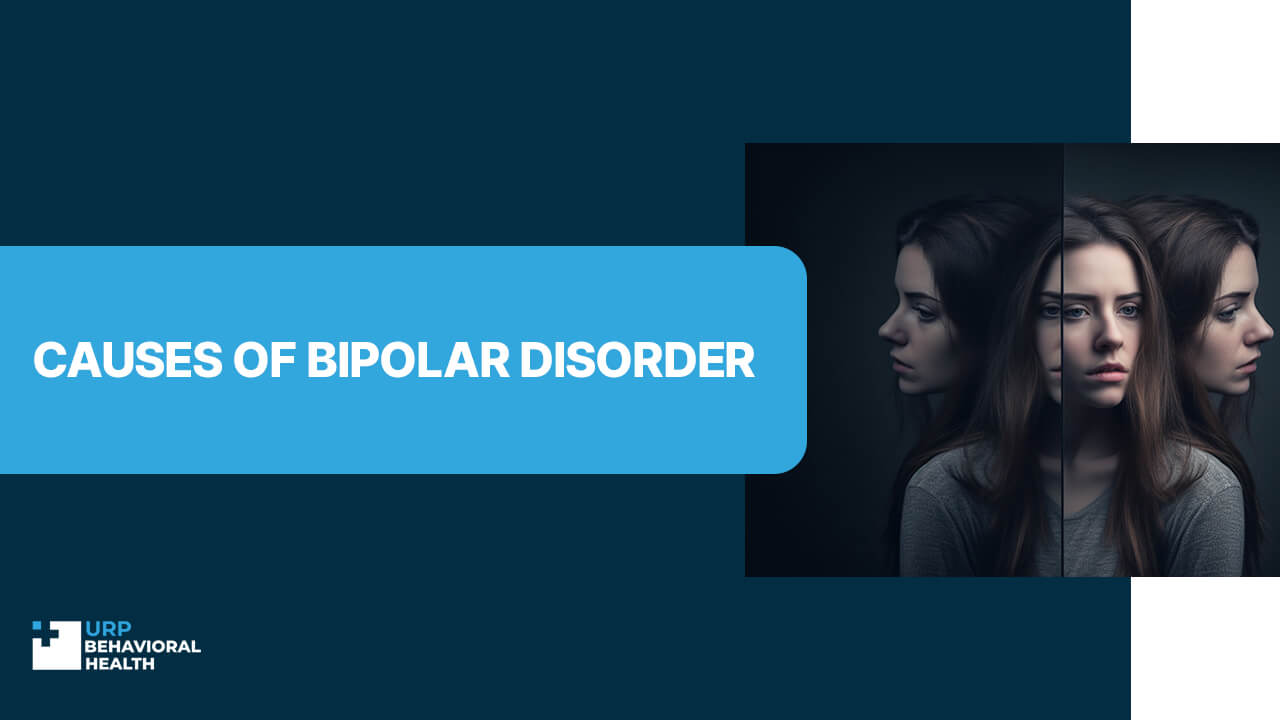
Causes of Bipolar Disorder
Bipolar disorder is a complex condition that elicits a range of mood swings, from emotional highs (mania or hypomania) to lows (depression), making it an extremely comprehensible mental illness. The resulting fluctuation of mood, energy, and activity levels can have a significant effect on a person’s ability to perform daily tasks, with drastic effects on energy and vitality. A comprehensive understanding of the causes bipolar illness and mechanisms of bipolar disorder provides insights into the pathophysiology and underlying mechanisms of the disorder. What causes bipolar disorders can be triggered by several factors, such as genetics, trauma, trauma, physical illness, environmental factors, and chemical imbalances in the brain. The article discusses what is the cause of bipolar disease and the possible cause of bipolar disorder.
Don’t wait - confidential help is available right now for you or your loved one.
What Are the Causes of Bipolar Disorder?
What factors contribute to the development of bipolar disorder? Bipolar disorder is a complex condition that may include genetic, biological, and environmental factors, according to some studies.
Genetic Factors
Bipolar disorder is often a result of genetic inheritance, which is a significant factor in causing the condition. Individuals with family history of bipolar disorder are more likely to experience the disorder themselves, according to evidence. Bipolar disorder is not caused by a single gene, but it is not a single gene that is responsible for the disorder. However, it is likely that multiple genes are involved in its development. Twin and family studies have found evidence of the heritability of bipolar disorder in two ways, with the usb-positive gene being the heritable factor. [1][2].
Trauma
Traumatic stressors, particularly in young children, can heighten the chances of developing bipolar disorder. The impact of physical, emotional, or sexual abuse on brain development, brain development, and brain damage can be significantly reduced or significantly reduced due to severe neglect or severe neglect, which increases the risk of mental health disorders. Traumatic brain injury can cause changes in brain structure and function, leading to bipolar disorder symptoms in later life.[3].
Physical Illness
Bipolar disorder can be a sign of a medical condition or other form of physical illness. Neurological disorders that may cause multiple sclerosis, stroke, and traumatic brain injury can also increase the risk of bipolar disorder, which is now a genetic condition associated with bipolar disorder. As a result of being both a result of thyroid imbalances and other endocrine disorders, mood dysregulation is often mediated by either the latter or the former, increasing the risk of the latter and, in rare cases, the risk of bipolar disorder and depression is increased.[4].
We’ll help you understand your options and guide you toward care.
Environmental Factors
In addition, bipolar disorder may be triggered by environmental conditions like stress, indifference, life changes, and inactivity. Stressful life experiences, such as the loss of a loved one, job loss, or relationship issues, can cause mood episodes in individuals with bipolar disorder. Drugs and alcohol, combined with substance abuse (from which abuse the disorder can be severe and even worse if symptoms are severe), can intensify the symptoms, complicating the path to recovery. [5].
Chemical Imbalance in the Brain
Bipolar disorder has been associated with chemical imbalances in the brain and a broader societal shift towards bipolar disorder. Neurotransmitters, including serotonin, dopamine, and norepinephrine, are significant regulators of mood regulation, which involves the interplay between neurotransmitters and the emotional state of the corresponding person (self-directed emotions, empathy, confusion, disorientation). Mood changes and bipolar disorder symptoms may develop when the chemicals in these chemicals are not balanced, as seen in a bipolar disorder diagnosis. Individuals who exhibit bipolar disorder frequently display abnormalities in the activation and control of neurotransmitters in their brain, which can impact their ability to respond and maintain normal moods according to expected standards. [1].
Conclusion
Bipolar disorder can be caused by various genetic, biological, and environmental factors, with each of these contributing to the development of the disorder. Although no one factor has been attributed to the illness, knowing the different factors involved can enhance our ability to receive a cure. Mental health professionals are responsible for treating individuals with bipolar disorder, including themselves, and advising them to see a counselor if they are diagnosed. When diagnosed early and successfully with bipolar disorder, individuals can achieve a significant quality of life improvement through appropriate treatment and early diagnosis.
Reach out today and let us create a treatment plan designed around your needs.
Sources
- National Institute of Mental Health (NIMH). (2024). “Bipolar Disorder.” https://www.nimh.nih.gov/health/topics/bipolar-disorder
- American Psychiatric Association. (2024). “What Is Bipolar Disorder?” https://www.psychiatry.org/patients-families/bipolar-disorders/what-are-bipolar-disorders
- National Alliance on Mental Illness (NAMI). (2017). “Bipolar Disorder.” https://www.nami.org/About-Mental-Illness/Mental-Health-Conditions/Bipolar-Disorder
- Bauer, M., & Whybrow, P. C. (2001). “Thyroid hormone, neural tissue, and mood modulation.” https://pubmed.ncbi.nlm.nih.gov/12587187/
- Maletic, V., & Raison, C. L. (2014). “Integrated neurobiology of bipolar disorder.” https://www.ncbi.nlm.nih.gov/pmc/articles/PMC4142322/
















